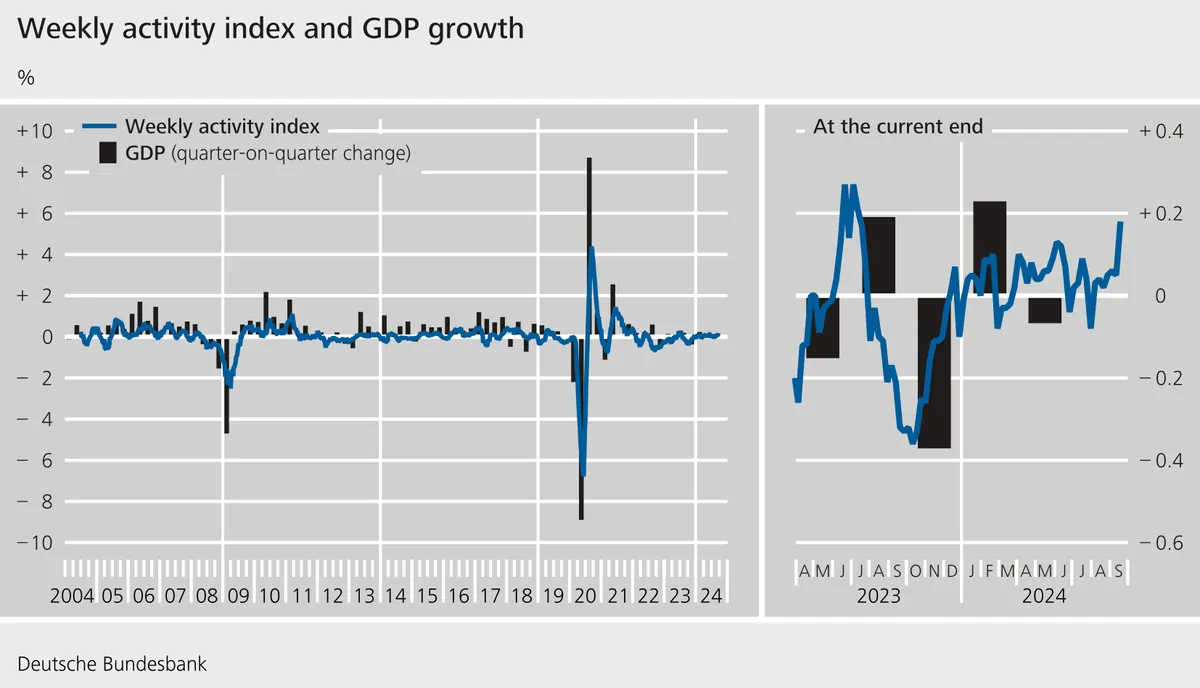German Consumer Sentiment Stabilizes at Low Level for October
German consumer sentiment shows slight improvement, stabilizing at a low level for October. Economic concerns persist, with increased saving tendencies amid uncertain outlook for Europe's largest economy.

German consumer sentiment is expected to stabilize at a low level as October approaches, according to a recent survey conducted by GfK Entertainment GmbH and the Nuremberg Institute for Market Decisions (NIM). The consumer sentiment index unexpectedly rose slightly to -21.2 points for October, up from a revised -21.9 in September, contrary to analysts' predictions of a further decline.
Rolf Buerkl, a NIM analyst, interpreted this minor improvement as a stabilization rather than a significant recovery. He noted that the consumer climate has remained stagnant since June 2024, when it measured -21 points. The slight increase, therefore, should not be seen as the beginning of a substantial upward trend.
The survey, conducted from September 5-16, 2024, revealed a complex picture of consumer attitudes in Germany, Europe's largest economy. While income expectations and buying propensity showed improvement, these positive factors were offset by an increased willingness to save and declining economic expectations.
Several factors continue to weigh on consumer sentiment:
- Ongoing geopolitical tensions
- Persistent inflation concerns
- Emerging labor market worries
Recent economic data paints a challenging picture for Germany. Business activity contracted sharply in September 2024, reaching a seven-month low. Additionally, leading economic institutes have revised their growth forecasts downward for the coming years.

The consumer climate indicator, which forecasts real private consumption trends, provides valuable insights into the German economy. A reading above zero signals year-on-year growth in private consumption, while a negative value indicates a decline compared to the previous year. GfK notes that a one-point change in the indicator corresponds to a 0.1% year-on-year change in private consumption.
Germany's economy, known for its strong manufacturing sector and export orientation, faces multiple challenges. The country's social market economy model is being tested by global uncertainties and domestic concerns. As part of the Eurozone, Germany's economic performance has significant implications for the broader European economy.
Consumer surveys, such as this one, play a crucial role in economic research and forecasting. They provide insights into public sentiment, which can influence spending patterns, investment decisions, and overall economic activity. The willingness to buy indicator, income expectations, and economic outlook are all key components that shape consumer behavior and, consequently, economic performance.
As Germany navigates these economic headwinds, policymakers and businesses will be closely monitoring consumer sentiment and other leading indicators to gauge the direction of Europe's largest economy in the coming months.
"After the severe setback in the previous month, the slight improvement in consumer sentiment can be interpreted as stabilisation at a low level."
This stabilization, while not a robust recovery, may provide a foundation for future economic strategies as Germany works to address the complex challenges facing its economy and consumers.


































